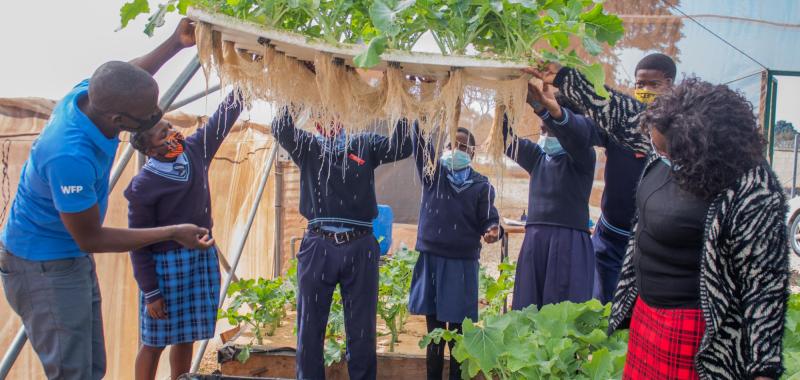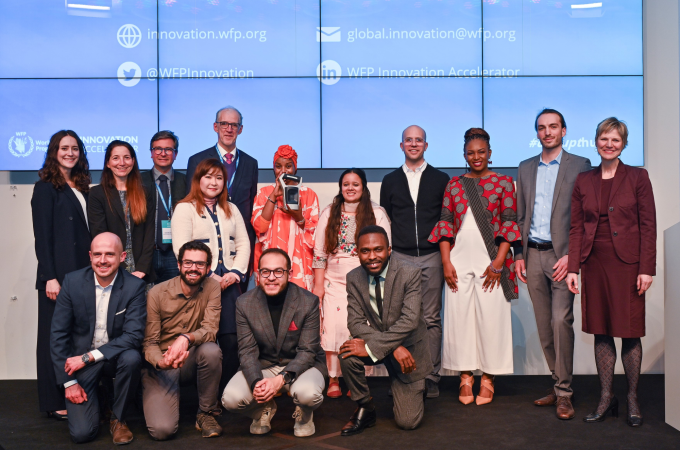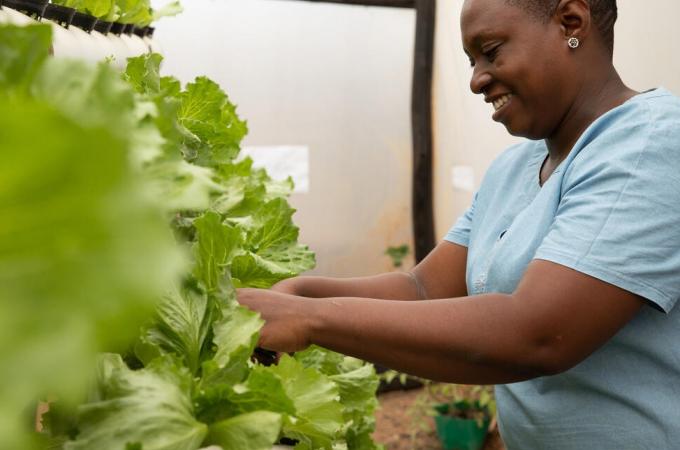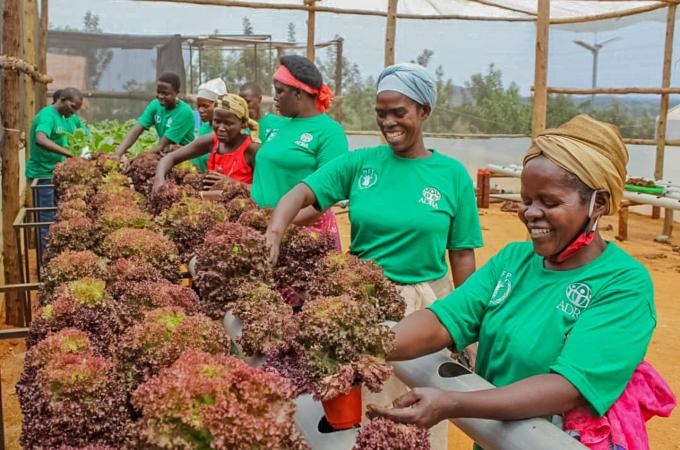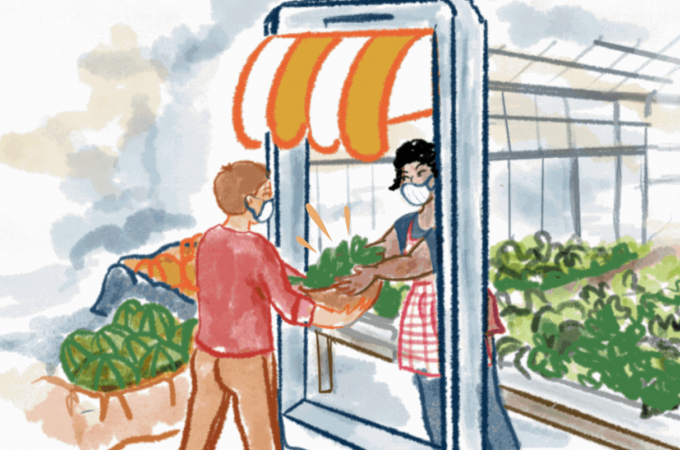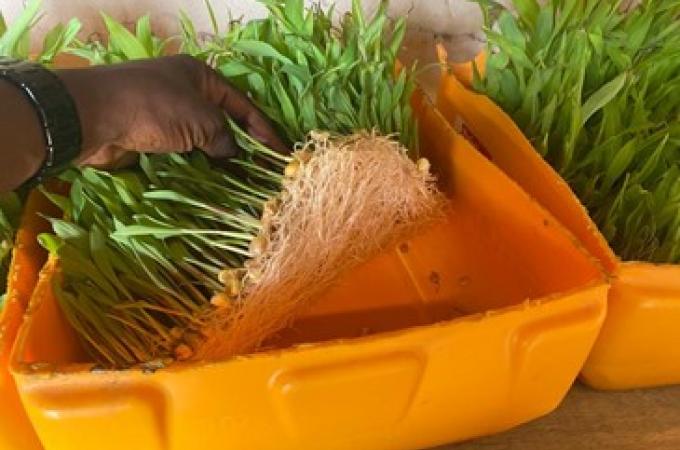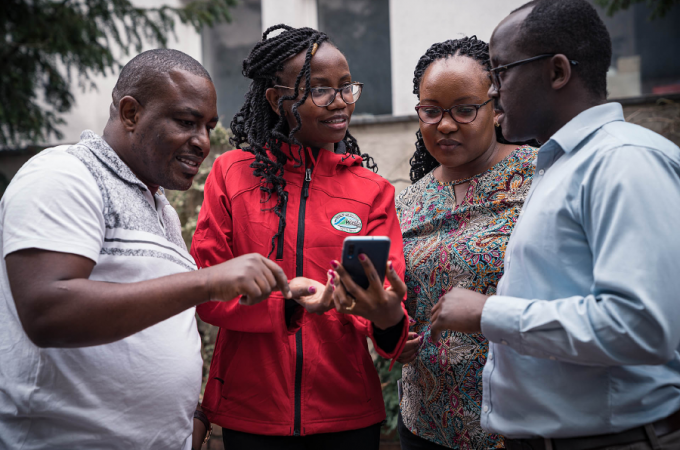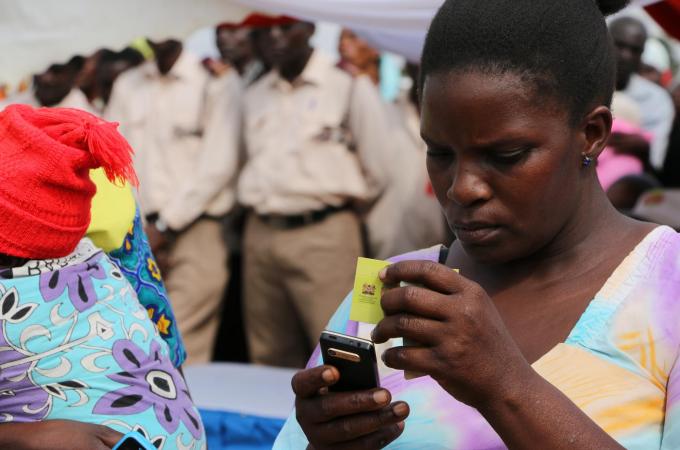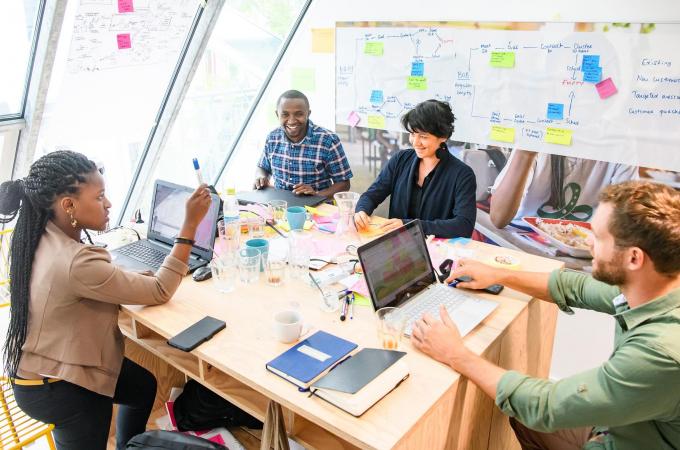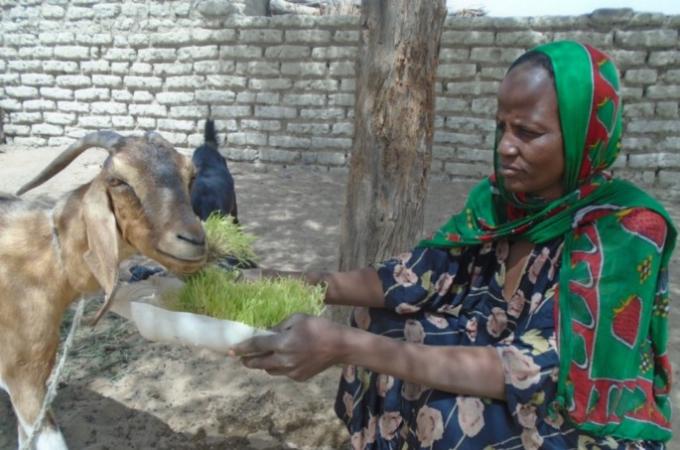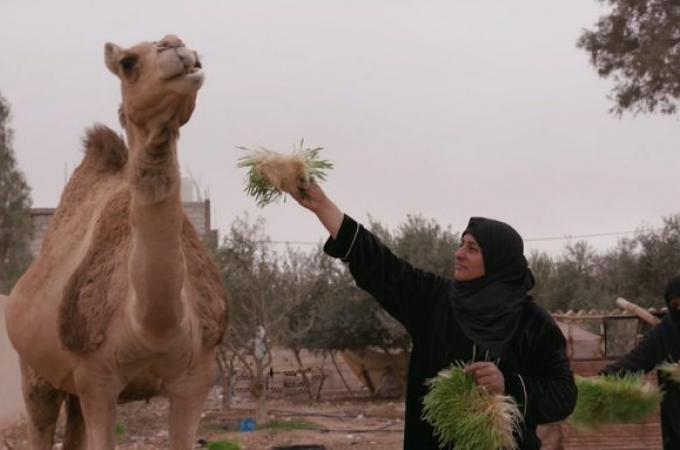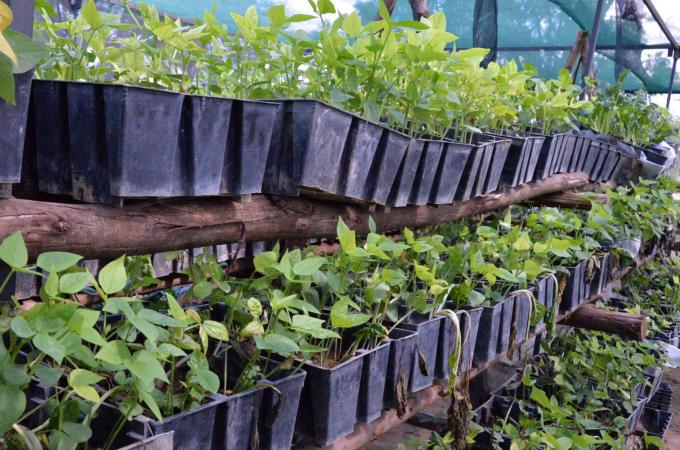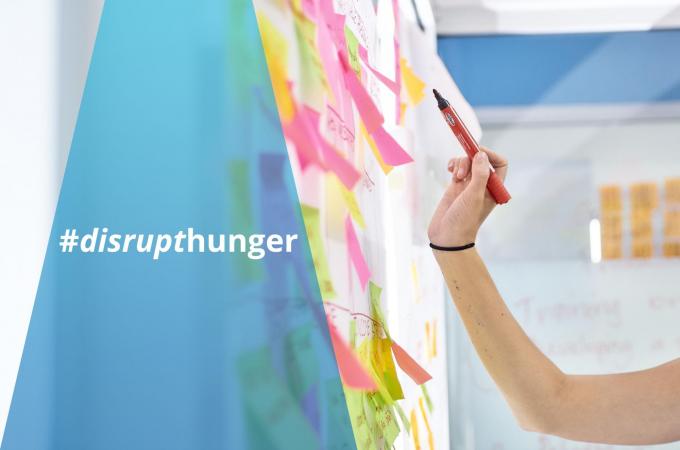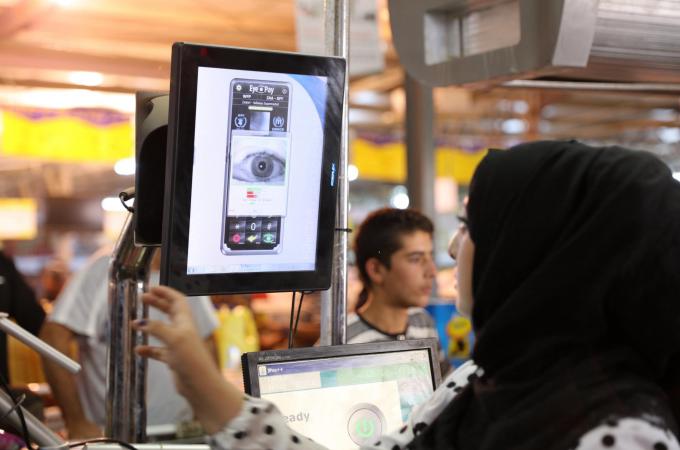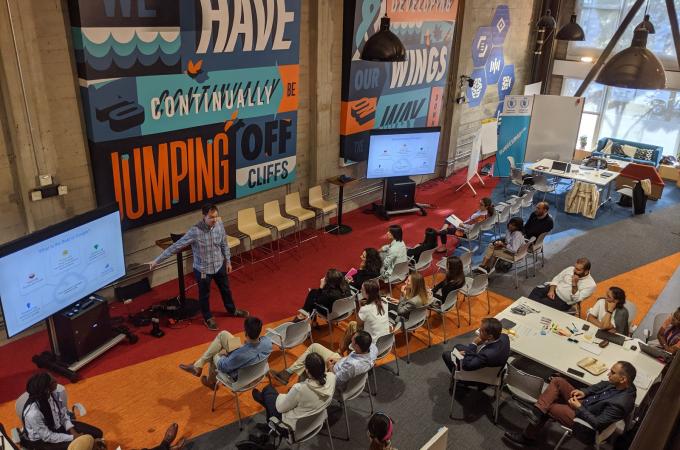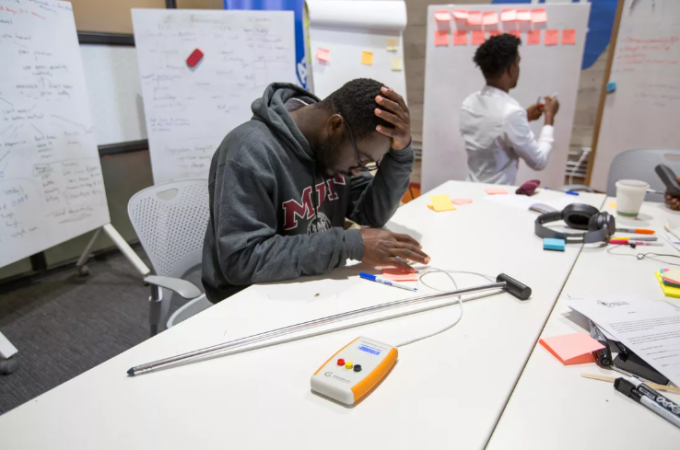Grow anywhere: Hydroponics is a soilless cultivation technique that enables plant growth in arid or peri-urban areas. It can use up to 90% less water and 75% less space, enabling the production of crops at growth rates up to 100% faster than traditional agricultural methods.
Project overview
H2Grow is WFP’s hydroponics initiative that brings locally adaptable and affordable hydroponic solutions to vulnerable communities worldwide. By developing low-tech systems from local materials and growing fresh vegetables or animal feed in deserts, refugee camps, or informal urban settlements, H2Grow supports food-insecure families to increase their access to fresh food and raise their income.

2016 –DESIGN: Together with food-insecure families living in the arid urban slums of Lima, Peru, WFP tested hydroponic methods to design an easy-to-implement solution for growing vegetables using locally-sourced materials.
2017 – FAIL: Deployment of a high-tech controlled environment Food Computer was tested for 6 months in Jordan to identify the best growth conditions for highly nutritious crops. The concept proved to be too early-stage to be a field ready.
2018 – ITERATE: Sahrawi refugees in the Algerian Sahara Desert adapted a high-tech hydroponic system to their specific context using local materials. Through multiple iterations, they created a low-tech and accessible solution that provides a sustainable food supply for livestock. This became the base for replicating the model in other contexts such as Chad.
In 2021, a Model Hydroponics School Garden in Lusaka, Zambia, was constructed for learning and applying best practices. Twenty-five additional greenhouses have already been built to produce fresh vegetables to enrich the Home-Grown School Meals (HGSM) Programme managed by the Ministry of Education. Watch video here
By 2021, H2Grow established a Global Community of Practice with representatives from more than 55 organizations. It supported the WFP Nigeria Country Office in building 193 new hydroponics animal feed units, which produced 40 tons of fresh animal feed.
In 2022, the construction of 41 hydroponic units for home grown school feeding programmes in Burundi commenced with the potential to reach an additional 41,000 school children eating nutritious food grown from hydroponic gardens once completed.
As of December 2022, the H2Grow project has supported 21 countries. Recent countries in the portfolio include Burundi, Ethiopia, Libya, Nigeria, Uganda, and Zimbabwe.
H2Grow was showcased at COP27 in November 2022 reaching a global audience. Watch the WFP Innovation Accelerator pitch event at COP27 here.
In 2024, H2Grow installed 30 hydroponic units in Kibera, reaching over 300 households. It also installed five hydroponic units in Wajir (arid and semi-arid land areas), to reach over 50 households.
This year H2Grow transitioned to our Alumni portfolio. Our Country Offices continue to launch and scale hydroponics models in their programming to enable the growth in food in schools, refugee camps, and vulnerable communities.
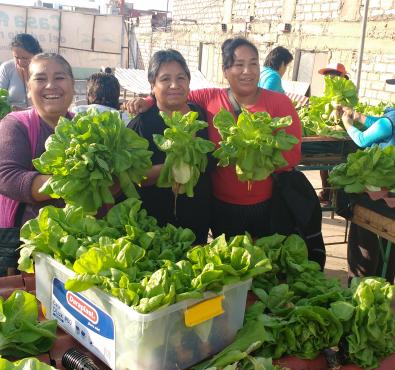
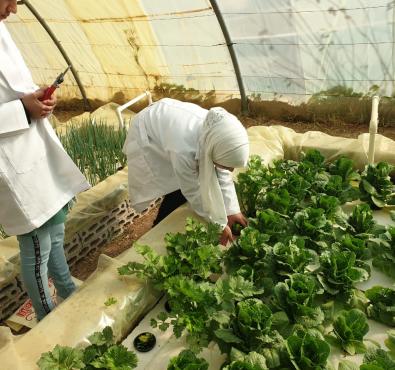
Together with the communities H2Grow adapts its hydroponic systems to the local context making it affordable and available. By developing low-tech systems from local materials, growing fresh vegetables or animal feed in deserts, refugee camps or urban informal settlements, H2Grow supports food-insecure families to increase their access to fresh food and raise their income. Looking at the cost benefit and how it fits into the local market in each country is a key factor of success.
Through tailored training programs hydroponic farmers learn everything from a basic understanding of the agricultural technique, daily management of their crops to dealing with pests and diseases. It empowers them to grow food, escape hunger, improve their nutritional status and earn their own income by selling food on the market.
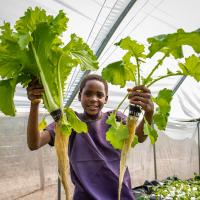
H2Grow is scaling not only by expanding the operations on the ground and testing new models for financial sustainability but also by enabling others to use hydroponics techniques in the development and humanitarian context. The WFP H2Grow / Hydroponics Community platform connects WFP employees with learnings, resources, and training to support the continued scale of hydroponics programming globally.



